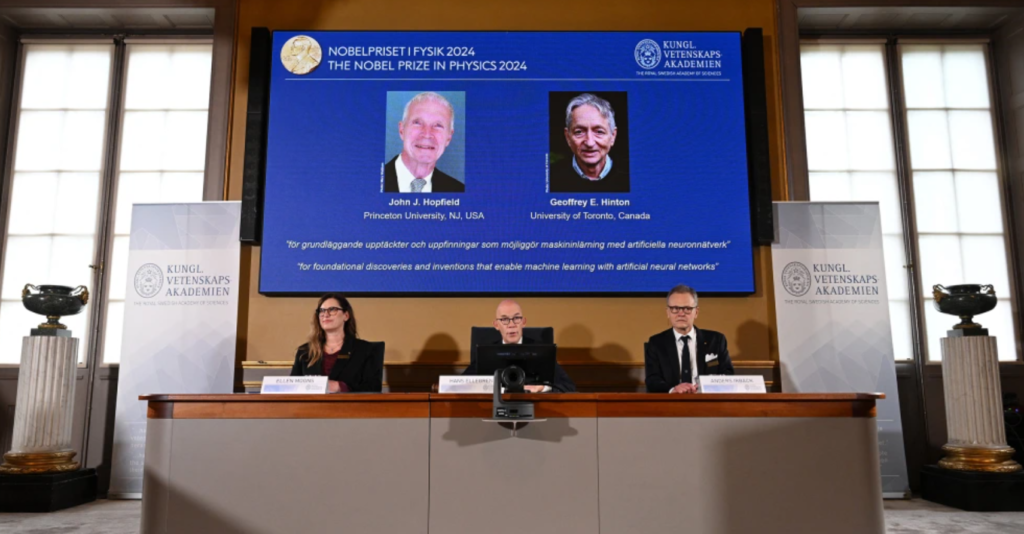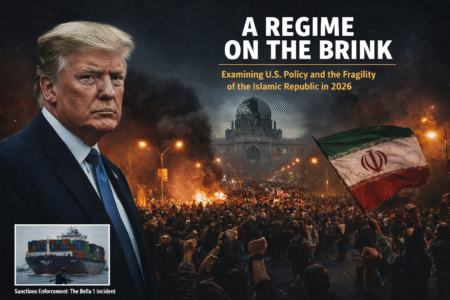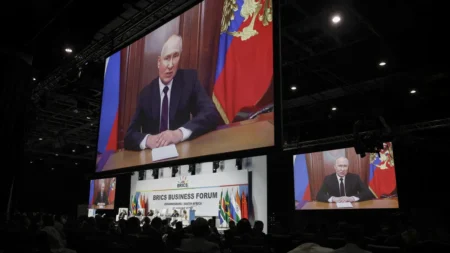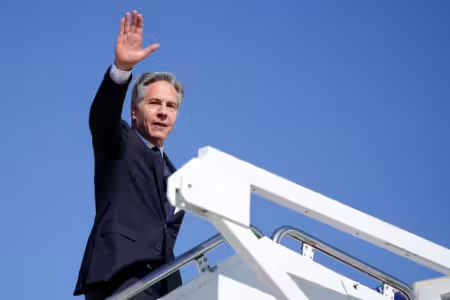
John Hopfield and Geoffrey Hinton have been awarded the 2024 Nobel Prize in Physics for their pioneering contributions to the development of machine learning, particularly in the realm of artificial neural networks. The Royal Swedish Academy of Sciences recognized their work as a foundational step in advancing this technology, which is now integral to many aspects of daily life.
John J. Hopfield, a professor at Princeton University, was honored for creating an associative memory model, commonly known as the “Hopfield network.” This neural network is capable of storing and reconstructing patterns from incomplete data, simulating certain brain functions. His innovation laid the groundwork for today’s machine learning systems.
Geoffrey E. Hinton, a professor at the University of Toronto often referred to as a “godfather of AI,” developed methods that allow neural networks to autonomously detect features within large datasets. His work enables AI to perform tasks like identifying specific elements within images, making it a key component of modern image recognition technologies.
The Nobel Committee highlighted the profound impact of their work, stating that their methods are the foundation of powerful machine learning tools used in various fields, including physics. Ellen Moons, chair of the Nobel Committee for Physics, noted that these advancements are being applied in areas such as developing new materials with unique properties. “Artificial neural networks have become part of our everyday lives, for instance in facial recognition and language translation,” Moons said during a press conference.
However, the rapid rise of artificial intelligence has also stirred concerns. The Nobel Committee acknowledged these fears, emphasizing that the responsibility for ensuring AI is used ethically rests with humanity. Moons stressed, “Collectively, humans carry the responsibility for using this new technology in a safe and ethical way for the greatest benefit of humankind.”
Hinton, who previously resigned from Google to speak openly about the potential dangers of AI, reiterated these concerns upon receiving the award. Speaking from California, where he was surprised by the news, he admitted being “flabbergasted” by the recognition. He expressed ongoing concerns about the negative consequences AI might pose, especially the possibility of it getting out of control. Nevertheless, Hinton reflected that, despite these worries, he would still pursue the same path if given the chance.
This Nobel Prize not only recognizes the scientific achievements of Hopfield and Hinton but also underscores the ongoing global debate surrounding the safe and ethical use of artificial intelligence.
Source:
Al Jazeera and NBC News







2 Comments
Good information 💯
Good